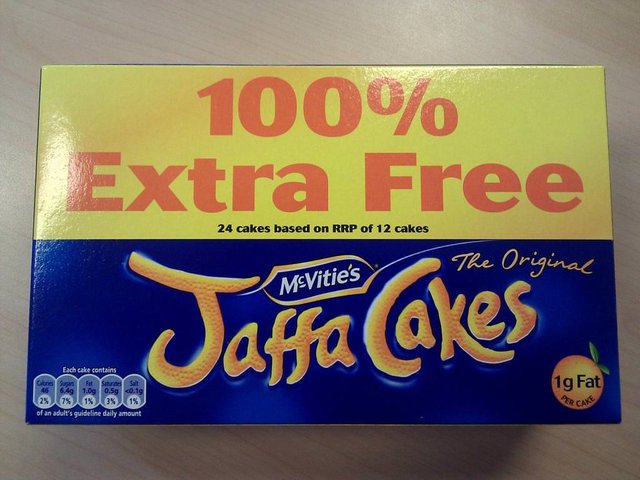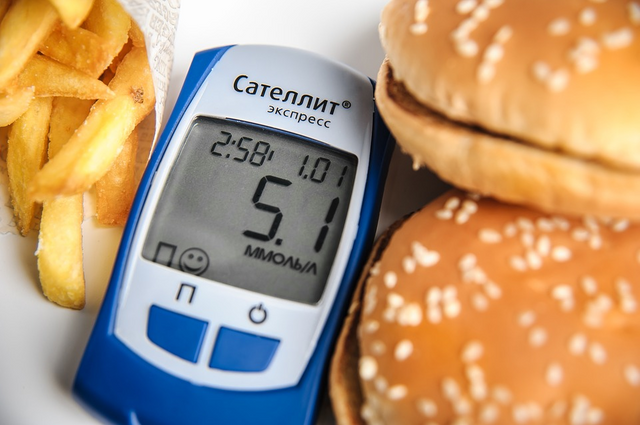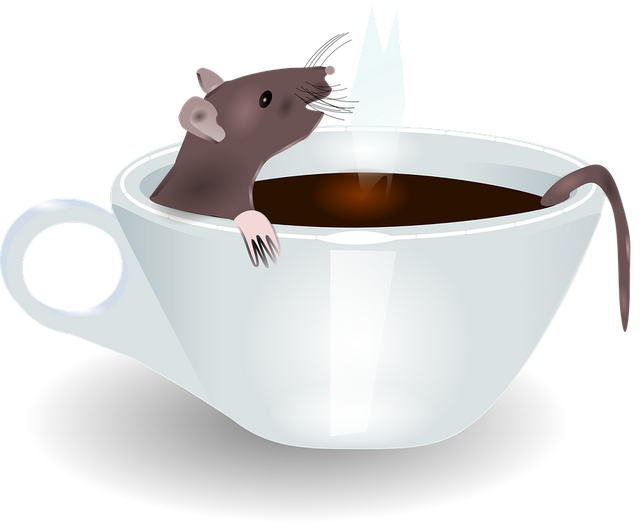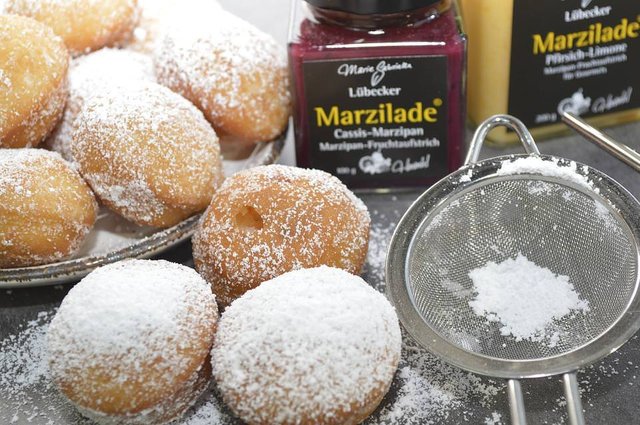Can Type 2 Diabetes be Reversed? I Bloody Hope So!
I'm a man of simple pleasures. I don't need riches, nor do I need fame. I wouldn't mind either of them but I don't need them in the way that I need a can of Cherry Coke every few days to be happy. And here lies my biggest issue. I love sugar. I love sugar of all kinds in all forms, and without it I feel like something is missing from my life.
It's a real bitch then, that I was diagnosed with type 2 diabetes earlier this year. Combined with my eczema and seasonal asthma, I'm the king of nonthreatening ailments that are just minor enough that they don't ruin my life, but just annoying enough that they make every day a frustration.
It didn't come as much of a surprise. I've been known to take 100 Jaffa Cakes to the dome in a single night, and could kill off a crate of 24 Cherry Cokes in an evening, back when I lived in the UK. Moving to China probably helped put it off a little while, but I still eat like shit, consuming carbs like a bear at a picnic.

source: osde8info
My entire family tree has dealt with type 2 diabetes, a disease which according to the US National Library of Medicine, is caused by an unknown mixture of genetics and lifestyle. Apparently 150 variations of DNA have been associated with the risk of developing diabetes, and knowing my luck, I probably have all of them. This, combined with my self-destructive lifestyle of consuming as much sugar as possible just to feel normal in the morning, meant that I was was essentially screwed from the start.
In case you're reading and thinking 'what even is diabetes?, ahhh well doesn't affect me', let me take a moment to explain. Type 2 diabetes is when your body isn't making insulin correctly. Insulin is a hormone that helps in moving glucose to your cells for them to make energy with. Glucose is a kind of simple sugar that occurs naturally in both plants and animals. Alarmingly, both types of diabetes are increasing at worrying rates, especially amongst youths.

While the cause is listed as unclear, the massive increase in fast food and carb-based ready meals probably has a lot to do with the rise of diabetes, which goes hand-in-hand with obesity. While companies with vested interest in peddling cheap carb-heavy junk lobby and skew facts (see the food pyramid that was accepted as gospel in the 80s and 90s) The rise of obesity can be seen in action, as fast food, which was until recently a rarity in China, is becoming more commonplace in the everyday diet.
A large factor in this is that the extreme amount of sugar in common products is pretty well hidden. I never even gave a second thought to buying Starbuck's Christmas Cinnamon Mocha Choco cookie frap with extra sprinkles of sugar and a candy cane the size of a real cane sticking out the top. "Who would have thought coffee could taste this great!" I thought as I consumed more than 100 grams of sugar, more than double the daily recommended allowance , before 8am.
Anyway, I could point fingers at corporations all day, but rather than blaming everyone but myself, I'd rather look and see if it's possible to try and fix a lifetime of neglect. And there's good news there.
Many people are managing to send their diabetes into remission, using diet and weight loss. Not ideal for someone like I, who enjoys spending my days in a similar fashion to a beached whale, but it's good to know that it isn't necessarily forever. When I was first diagnosed, I actually had pretty good success in this area. I went completely carb free. This lasted almost four months, and while the first month was unbearable, and caused constant headaches and moodswings as I thought depserately about grabbing a can of cherry coke, which was introduced into China just last year, with Warren Buffet's smirking face branded on the side of the can, looking at me as if to say "Oh Deathbatter, you really thought you could escape me? I AM YOU."

After that first month though, things were going great, I was losing weight, feeling good, waking up with energy, and my blood sugar levels had dropped considerably. Sadly after four months I had to travel back to the UK, and I regressed entirely back to my old self, and haven't been able to force myself back through that carb cold turkey ever since.
My only victory then, is that I have managed to keep sugary drinks out of my diet. I haven't had a coke of any kind in 7 months, and I am now addicted to soda water, which is frankly the only thing keeping me sane. One day I'd like to get back on the horse, and when I do, hopefully I'll be able to stay on it long enough to reverse the condition completely.
However, in what feels like a rain shower of good news and tidings, there's even more promising research! A team in Zurich, Switzerland have recently taken a break from founduing and worked out and demonstrated that in mice at least, caffene can be used to trigger changes in genetic circuitry. Using this method, they have been able to treat diabetes in mice with sips of coffee. Hopefully that will one day be applied to cherry coke and jaffa cakes in a one-two punch of delicious treatment.

source
Until then, I'll be a fat fuck that takes his medicine like a good 32 year old boy.

Hey, very well written blog. I agree that the majority of increase in diabetes prevelence can be attributed to contacentrated sugar drink (along with our lifestyle). Nonetheless there are two things to be noted. Type 2 diabetes majory begins with insulin resistance. That is to say your body is making insulin fine but is unable to use it. In later stages of Type 2 diabetes you get UPR in Beta Islets , followed by inflammation and everything goes down the drain after that. So if you manage your diet well and follow your doctor's advice type 2 is pretty much cobtralable in early stage.
Second point being that the nature study you mentioned. The mice did not get cured because of caffeine. They had synthetic genetic modification responsive to caffeine. They made modified
transcription factor and made HEK293T cells express them. They then encapsulated these cells and implanted them in a type 2 diabetes mouse model. Then when they fed them caffeine the cells made and secreted glucagon peptide in mice, which improves blood sugar homeostasis.
So I am not sure about caffeine but it might be possible to treat patients with encapsued cells that secrete these hormones.
Hey @scienceblocks
Here's a tip for your valuable feedback! @Utopian-io loves and incentivises informative comments.
Contributing on Utopian
Learn how to contribute on our website.
Want to chat? Join us on Discord https://discord.gg/h52nFrV.
Vote for Utopian Witness!
Thankyou @utopian-io
Biological transcription factors or actual specialised gland cells??? Great point by the way!!
Well technically all transcription factors will be biological. Tramscription factors are what binds to DNA and promote binding of RNA polymerase in that region, which causes gene expression. Now it is not like the gene switches - where you modify a transcription factor such that you control when and where it binds and expresses a gene, haven't been made before. There have been ones that can be controlled by tetracycline. There are others controlled by light. The selling point of this paper is there system requires a cheap, non toxic and a non antibiotic molecule aka caffeine to control genes.
So all they did was to first design a a caffine binding protein, technically an antibody.Lets call it aCaff This molecule will dimerize (bond together) with another molecule if aCaff if both of them has caffine bound to them. Now a gene switch system for Tetracycline already exists. It has a transcription factor with DNA binding domain and a tramsactivation domain. The transption factor causes expression of genes it is bound to only when both domains come together. So they fused this transcription factor to caffine binding protein instead of tetracycline binding protein. Now you express these fusion proteins in the cells, along with the gene you want to express and there it is. See this figure
https://www.nature.com/articles/s41467-018-04744-1/figures/1
To answer your next question no they did not use glandular cells. They used human embryonic kidney 283T cells. Which is a cell line once made and now commercially available to any researcher. They use this because it is extremely easy to put any DNA in these cells as compared to your actual glandular primary cells or any other cell line for that matter. So they put DNA for their fusion protein in these cells so it express it. Then they use a promoter(A DNA sequence specific to transcription factors ) specific toTetR and fuse it with gene for glucagon peptide (a protein which is already favourite biological for treating type 2 diabetes). Now you also insert this gene in HEK cells that you inserted your fusion proteins in. Now these cells will express gene for glucagon of and only if you treat them with caffine.
The rest of the story is pretty simple. You just add these cells with all your synthetic genes in a microcapsule and implant it intraperitoneal in the mice. If the implamted mice is model for type 2 diabetes(the leptin knockout mice), then serving them coffee improves their glucose homeostasis.
Let me know if you have more questions on this.
Sunny Kataria, AMRSB
I absolutely love the fact that you explained this fully that all makes sense and especially in non-laymans terms! I think the fact that they didn't use actual glandular cells makes sense but my last question is was that because the process for mRNA rewriting is quicker or is it just ease of getting those specific cells?? Great experiment they're doing too gene controlling is something I'm seriously interested in and I will follow for your future posts mate!
Glad I was able to. Well the speed of making mRNA can be attributed to two major factors. One being the promoter and transcription factor of course. The second being the sequence if gene itself. The former decides the binding and availability of RNA pol to the gene and later decides speed at which RNA pol moves on the gene. Since RNA pol is available at sufficient amount in all cells. I doubt if cell type used will affect speed of mRNA synthesis. It can however effect processing if mRNA and its translation. But then this is what I know of , I am not aware of any study done to test how any other factor in nuclei of different cell type effects speed of RNA pol. Any I guess I digressed a bit. But yes for this paper they used HEK because they are smooth to work with then it comes to availability, culture and even in terms of inserting DNA for different genes.
I don't know if you saw my last blog, but I have a picture of HEK cells I inserted DNA inside to produces viruses containing GFP gene (along with some shRNA, but I will keep that secret for now).
Anyway , I don't think that HEK are best cells as far as using this method in humans is concerned. For starters they are transformed immortalized cells. They can grow even if you spit on them (I even tell that to students that come to me for training in the lab) . Moreover they produce all kind of crap that you may not want in your body. So if I was to treat humans with this method, HEK won't be my cells of choice.
Thanks for the hugely informative posts, they're far better explanations than I could hope to write. I think that even with the current rapid advances in medicine, hoping for a straight up caffeinated cure is certainly wishful, but this avenue of research could lead to an inexpensive method of regulating the illness.
This is indeed exciting. Though this is just one avenue. There are many people are working on. I was myself working on inflammatory aspect of Type 2 diabetes where injecting t regulatory cells improved the glucose homeostasis. I moved to continue with another project in the meantime. But will try to list the different approaches in some soon.
Hey thanks. i'm also a firm believer that diet and exercises are the best response to type 2 diabetes, especially in the early stages. Unfortunately I have the willpower of a slug and completely fail to stick to healthy diets for any length of time.
Re the nature study, yeah while it isn't a straight-up cure, I welcome any research that helps to regulate the levels of blood sugar, especially with rising levels of both obesity and diabetes worldwide.
I agree. Another good tip is probably to incline ones bed http://www.inclinedbedtherapy.com
Type 2 diabetes can definitely be reversed, but unfortunately, you have to give up your sugar. I know it sucks, I like it too, but I've come to realize my sugar addiction stems from deeper, emotional issues I haven't dealt with. On the surface, sugar is very addictive, so working on consuming less and less is important and replacing it with healthier options like fruit. Good luck!
haha i think it's easier to treat my diabetes than it is my deep-seated emotional issues. I've had fairly good periods of success with reducing and removing refined sugars from my diets, but I tend to cave after a few months.
Sugar has been more of a problem for me than smoking, drinking or any other drugs.
Thanks for the comment and support!
thanks for the article - really very well written. A lot of thoughts are in my head now...
I think, that the best way to stay healthy and know how much sugar you consume, just cook at home and eat the meal, which was made by yourself. It's only one way to know all about hidden sugar and the quality of the ingredients were used.
Yeah in England the traffic light system they have on packaging is pretty effective at informing of any hidden sugars, but sadly it doesn't exist yet here in China, and all ingredients are in Chinese which makes it way harder. I love cooking at home but I just have so little time after work!
@deathbatter Great Blog Thanks For sharing
This post has been voted on by the steemstem curation team and voting trail.
There is more to SteemSTEM than just writing posts, check here for some more tips on being a community member. You can also join our discord here to get to know the rest of the community!
The sources I saw were not scientific journals, but news articles.
So? We don't require sources to be scientific journals
Hey bud,
After reading your post, I'm hearing a repetition of what the public seem to think is the enemy: sugar.
Indeed, if you are diabetic, you need to limit spikes in your blood sugar, but it doesn't mean that sugar is the cause of the disease.
The complex interactions of the phytonutrients within whole foods doesn't necessarily create problematic rises in blood sugar when eating whole, natural sugars found in whole foods (eg, dates, nuts and fruit). Thinking about sugar as the problem is like patching the cut on your leg after kicking it repeatedly. The kicking is the cause of the injury, and should be addressed accordingly.
Animal derived fats are said to play a huge role in the development of diabetes as excess fats in the bloodstream interfere with the unlocking mechanism of insulin to allow the uptake of glucose into cells.
I'd recommend reading papers and books by Dr Neal Barnard and the simplification of the research by Dr Michael Greger of the free website, NutritionFacts.
Take care and congratulations on the success of this post.
Nick.
I mean, sugar is certainly the enemy for me. As I said in the post, my whole family has a history of diabetes, so while sugar isn't the direct cause, it is the culprit behind spiking my blood sugar levels - something I have tested both fasting and after eating. Such tests have also shown spikes after eating certain fruits too.
Also, while I'm not contesting what you're saying about animal-derived fats, for me at least, I spent months on a high-fat, high-protein next to zero carbs diet, during which time my blood sugar levels went down to around 6 mmol/L after eating.
Saturated fats and sugar are both huge problems in general for the modern day diabetic, as they both contribute to weight gain and obesity, which has at least some kind of strong relationship with diabetes.
Thanks for the reading recommendations, I'll be sure to check it out.
No worries. Once you find information, it turns out to be a rabbit hole of glorious scientific findings.
Oh also check out a dude on youtube called "mic the vegan".. despite the apparent vegan bias, he has a recent video up also looking at carbs and diabetes. Here's the link worth having a look at.
All the best, my friend. Keep us updated on your journey and new findings.
We are behind you, hoping you get on top of it.
Nick.
Hi @deathbatter!
Your post was upvoted by utopian.io in cooperation with steemstem - supporting knowledge, innovation and technological advancement on the Steem Blockchain.
Contribute to Open Source with utopian.io
Learn how to contribute on our website and join the new open source economy.
Want to chat? Join the Utopian Community on Discord https://discord.gg/h52nFrV
Wow ! Amazing Blog
Congratulations @deathbatter! You have completed the following achievement on Steemit and have been rewarded with new badge(s) :
Click on the badge to view your Board of Honor.
If you no longer want to receive notifications, reply to this comment with the word
STOPDo not miss the last post from @steemitboard:
SteemitBoard World Cup Contest - Croatia vs England
Participate in the SteemitBoard World Cup Contest!
Collect World Cup badges and win free SBD
Support the Gold Sponsors of the contest: @good-karma and @lukestokes
Interesting read. I understand totally. I am an Indian and I love sweets but was diagnosed with diabetes type 2 which like you, my family also have. I sometimes powder cinnamon and have it with tea - a pinch and it is said to lower blood sugar levels. Some people advice Stevia but I am not sure if it is available in our parts. As of now, life is without sweetness.